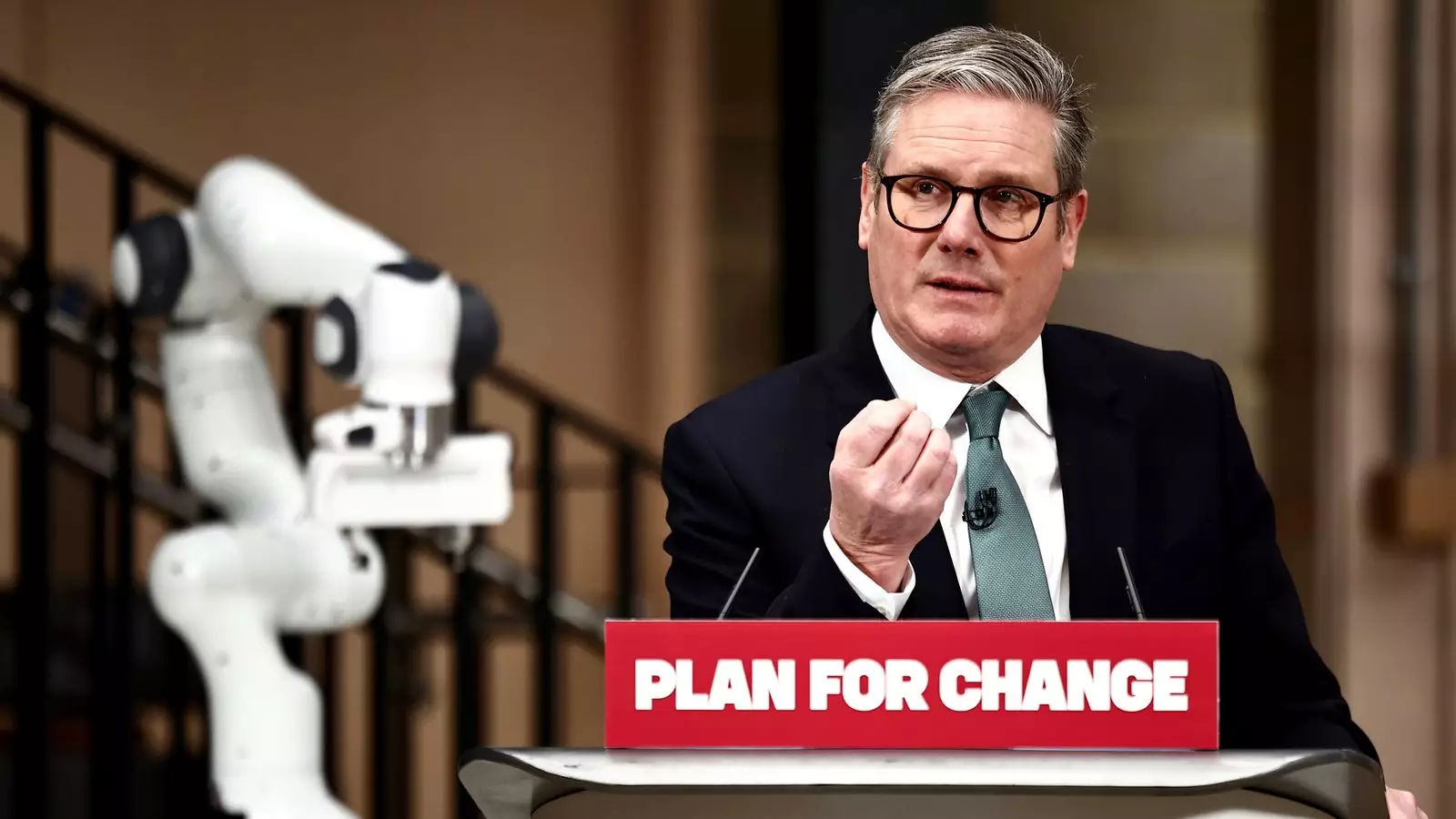In an ever-changing economic landscape, political leaders face the enormous task of managing finances while ensuring sustainable growth. Sir Keir Starmer, the leader of the UK Labour Party, recently addressed concerns regarding the tumultuous state of the economy, emphasizing the necessity for governmental financial discipline. As he unfolds his vision for fostering economic growth amidst rising borrowing costs, scrutiny of his strategic approach reveals deeper implications for the UK’s financial future.
Starmer’s declaration that the Treasury will adopt a “ruthless” stance in cutting government spending naturally raises eyebrows among citizens and economic analysts alike. This firm commitment to austerity reflects a broader strategy aimed at stabilizing the nation’s finances in the wake of notorious market fluctuations. Yet, the question remains: can a mere focus on spending cuts genuinely revitalize an ailing economy?
As reported, long-term borrowing costs for the government have spiked significantly, reaching levels unseen since the late 1990s. These rising costs imply that the government will struggle to manage its fiscal policies without deviating from established rules. Starmer’s rhetoric serves as a warning that economic growth initiatives could face stringent budgetary limitations, ultimately leading to potential cuts in essential public services. This approach appears to exude confidence in overcoming economic difficulties; however, it might also reflect an over-reliance on austerity measures rather than innovative economic strategies.
Starmer’s comments further highlight a prevailing belief that stability can be achieved through strict adherence to fiscal rules, a sentiment echoed in political circles. While setting clear fiscal parameters is essential, rigid reliance on them can, paradoxically, stifle adaptability in crisis situations. The very definition of sound governance is flexibility; sticking to fiscal rules without an allowance for circumstantial adjustments can lead to further economic degradation.
Additionally, Starmer’s assertion that the Labour government inherited a “real mess” from the Conservative leadership introduces an element of political blame-shifting that could undermine public trust. By dwelling on past administrations’ failures, he risks appearing evasive rather than proactive—casting doubt on whether the current government possesses coherent and actionable plans for sustainable growth.
The recent exchange regarding the future of Chancellor Rachel Reeves raises significant concerns about leadership continuity and reliability. Though Starmer praised Reeves for her performance, his hesitation to affirm her future role suggests a deeper unease within the party’s ranks. In politically turbulent times, consistency in leadership is paramount. The lack of outspoken confidence in key figures could signal potential instability that may disturb markets further.
This uncertainty provided ammunition for the Conservative Party, which has capitalized on Starmer’s reluctance to endorse Reeves publicly. The criticism from Conservative leader Kemi Badenoch highlights the charged atmosphere surrounding the Labour Party’s economic strategy. If Labour’s leadership falters at a time when the public seeks assurance and stability, the potential backlash could be severe—compounding issues for an already strained economy.
The economic outlook is dim, with projections indicating potential increases in mortgage rates and further declines in currency value. Such instability undoubtedly affects public sentiment, as citizens grapple with immediate concerns about affordability and economic security. Amidst these unsettling prospects, Starmer’s administration must deliver credible solutions that resonate with constituents struggling to make ends meet.
While the emphasis on cutting costs may appeal to fiscal conservatives, the average citizen could interpret this as a signal of impending austerity that would sacrifice essential public services. Starmer’s challenge lies in marrying the necessity of fiscal prudence with the demands for economic growth and social welfare. Without this balance, the government’s credibility could erode, leaving the country in a quagmire of political and economic uncertainty.
Sir Keir Starmer’s economic strategies illustrate the tension between necessary austerity measures and the urgent need for growth-oriented policies. As the UK navigates tumultuous economic seas, the true test of leadership will hinge on the government’s ability to adapt strategies while maintaining public trust. Only time will reveal if Starmer can effectively manage these competing imperatives and usher in a new era of economic resilience. For now, the political landscape remains charged, and the future of the UK economy remains precariously balanced.


Leave a Reply